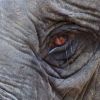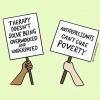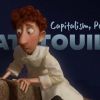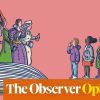-
 +2 +1
+2 +1Cut the ‘AI’ bullshit, UCPH
Why do we keep believing that AI will solve the climate crisis, get rid of poverty, and unleash the full potential of human creativity?
-
 +1 +1
+1 +1Writing Better Neurodivergent Characters in Fiction
I blinked a lot as a kid. Like, a lot a lot. And my head jerked, like a nod, only quicker and sharper and repeatedly. And I grunted. I didn’t even know I grunted until someone pointed it out to me.…
-
 +1 +1
+1 +1How To Write As If You Aim To Trick Others Into Believing That You Are Generative AI
Learn about the controversy over generative being used as a ghostwriter. In addition, insider tips are provided about telltale clues of generative AI written content.
-
 +1 +1
+1 +1A Scribe’s Musings: Cursive writing a curse or blessing?
Larry Schneider shares his thoughts on the importance of learning cursive writing.
-
 +27 +5
+27 +5Writing a Memoir Won’t Solve All of Your Problems
More and more people are writing memoirs than ever before. The trend is an extension of social media, and people being conditioned by algorithms to put their lives on display, and it’s creating higher levels of self-involvement, and one can easily be misled by feedback loops.
-
 +18 +4
+18 +4Why academics should hire generalists to edit their work (opinion)
When seeking an academic editor, you may want to consider a generalist, writes Natalie Schriefer, who suggests how to find the best one for your work.
-
 +26 +4
+26 +4The End of Reading
College students aren't reading anymore, unless you count texts, tweets, and social media comments (but I don't and here's why).
-
 +28 +5
+28 +5Why You'll Never Achieve The American Dream
Captalism is a cancer for humanity's excistence in general.
-
 +32 +7
+32 +7The troubling trend with ghostwriting
Internationally acclaimed ghostwriter and persuasive writing coach Joshua Lisec has ghostwritten more than 80 books.
-
 +32 +4
+32 +4Tragic And Mysterious Elephant Burial Ritual Witnessed by Scientists
Asian elephants loudly mourn and bury their dead calves, according to a study by Indian scientists that details animal behaviour reminiscent of human funeral rites.
-
 +36 +3
+36 +3#Happy: The Dictatorship of Happiness on Social Media
We spend hours on Facebook, Instagram and Snapchat, seduced by their promise: to be able to share our life and our opinions with the whole world. In this virtual world, everyone is happy. Everyone has perfect bodies, lives fulfilled lives in stylish houses surrounded by beautiful friends and family. Everyone shows off and everyone judges. But this irresistible quest for recognition can quickly turn into addiction, wreaking havoc on our mental health. And teenagers are the most susceptible. In this film, we examine the real dangers of the “happycracy” promoted on social networks and hear from some of its young victims.
-
 +24 +5
+24 +5Co-authoring: twice as fun or double the trouble?
When it comes to co-authoring, what are some of the issues and complexities about writing a book with another author?
-
 +28 +3
+28 +3Sick and tired of the gaslighting
-
 +41 +7
+41 +7The enduring gift of stories
A father finds a Christmas story that works for his infant daughter — and for the world.
-
 +41 +8
+41 +8How writing 'made us human' – an 'emotional history' from ancient Iraq to the present day
Evidence suggests that writing was probably invented in southern Iraq sometime before 3000BC. But what happened next?
-
 +42 +5
+42 +5Know Yourself Better by Writing What Pops into Your Head
The exercise of writing down unfiltered thoughts enhances self-knowledge
-
 +32 +5
+32 +5My gender was secretly changed as a baby and I didn’t know for 22 years
-
 +21 +1
+21 +1Capitalism, Poverty, and Ratatouille
-
 +8 +1
+8 +1No such thing as an aspiring writer
Hang around the #WritingCommunity hashtag on Twitter long enough and you will run into many, many people who claim to be “aspiring writers”. They are lying. There is no such thing as an aspiring writer. Many of them will claim that they are aspiring writers because they have not sold any of their writing.
-
 +20 +2
+20 +2Think women have never had it so good? You should take a look at medieval days
History shows that progress in gender equality is neither steady nor inevitable
Submit a link
Start a discussion




















